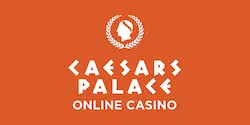Legal USA online casinos operate in seven states today.
Connecticut, Delaware, Michigan, New Jersey, Pennsylvania, Rhode Island, and West Virginia have legal gambling sites and online casino apps available to customers 21 or older.
Read on for more information about which online casinos are legal in the USA, what real-money games they offer, and how to maximize value from casino bonuses and promotions.
Best Online Casinos USA
 $25 On Signup + $1000 Deposit BonusBetMGM Casino Bonus Code: BUSABONUS
GAMBLING PROBLEM? Call 1-800-GAMBLER (NJ, PA, WV) or call 1-800-270-7117 (MI) for confidential help. Must be 21+. MI, NJ, PA, and WV only. Please gamble responsibly. Visit BetMGM.com for terms and conditions. All promotions are subject to qualification and eligibility requirements. Rewards issued as non-withdrawable site credit unless otherwise provided in the applicable terms. Rewards subject to expiry.
$25 On Signup + $1000 Deposit BonusBetMGM Casino Bonus Code: BUSABONUS
GAMBLING PROBLEM? Call 1-800-GAMBLER (NJ, PA, WV) or call 1-800-270-7117 (MI) for confidential help. Must be 21+. MI, NJ, PA, and WV only. Please gamble responsibly. Visit BetMGM.com for terms and conditions. All promotions are subject to qualification and eligibility requirements. Rewards issued as non-withdrawable site credit unless otherwise provided in the applicable terms. Rewards subject to expiry.
 $500 Deposit BonusBetRivers Casino Bonus Code: BUSA
Gambling problem? Call or TEXT 1-800-GAMBLER. 21+ and present in DE, MI, NJ, PA, or WV. Welcome bonus for new customers only. Playthrough requirements and other restrictions apply. Visit BetRivers for full T&Cs.
$500 Deposit BonusBetRivers Casino Bonus Code: BUSA
Gambling problem? Call or TEXT 1-800-GAMBLER. 21+ and present in DE, MI, NJ, PA, or WV. Welcome bonus for new customers only. Playthrough requirements and other restrictions apply. Visit BetRivers for full T&Cs.
 $10 + $1000 Deposit BonusCaesars Palace Online Casino Promo Code: BUSA10
Must be 21+ and physically present in MI, NJ, PA and WV only. New users and first deposit only. Wager $25+ to receive 2,500 Reward Credits. Max deposit match bonus of $1,000. Minimum wagering within 7 days required to unlock bonuses. NJ bonuses apply to slot play only. Full terms and wagering requirements at Caesarspalaceonline.com/promos. Void where prohibited. Know When To Stop Before You Start.® Gambling Problem? MI: Call the Michigan Problem Gambling Helpline at 1-800-270-7117; NJ, WV, PA (Affiliated with Harrah’s Philadelphia): If you or someone you know has a gambling problem, crisis counseling and referral services can be accessed by calling 1-800-GAMBLER (1-800-426-2537) or WV: Visit 1800gambler.net; ON: Visit connexontario.ca or call 1-866-531-2600 or text CONNEX to 247247. ©2023, Caesars Entertainment
$10 + $1000 Deposit BonusCaesars Palace Online Casino Promo Code: BUSA10
Must be 21+ and physically present in MI, NJ, PA and WV only. New users and first deposit only. Wager $25+ to receive 2,500 Reward Credits. Max deposit match bonus of $1,000. Minimum wagering within 7 days required to unlock bonuses. NJ bonuses apply to slot play only. Full terms and wagering requirements at Caesarspalaceonline.com/promos. Void where prohibited. Know When To Stop Before You Start.® Gambling Problem? MI: Call the Michigan Problem Gambling Helpline at 1-800-270-7117; NJ, WV, PA (Affiliated with Harrah’s Philadelphia): If you or someone you know has a gambling problem, crisis counseling and referral services can be accessed by calling 1-800-GAMBLER (1-800-426-2537) or WV: Visit 1800gambler.net; ON: Visit connexontario.ca or call 1-866-531-2600 or text CONNEX to 247247. ©2023, Caesars Entertainment
 500 Bonus Spins + $1000 Loss RefundFanDuel Casino Promo Code: Not Needed
21+ and present in CT, NJ, PA, MI or WV. Bonus issued as non-withdrawable casino credits. Gambling Problem? Call 1-800-GAMBLER or visit FanDuel.com/RG (NJ, PA, MI), or visit www.1800gambler.net (WV) or https://ccpg.org/chat (CT).
500 Bonus Spins + $1000 Loss RefundFanDuel Casino Promo Code: Not Needed
21+ and present in CT, NJ, PA, MI or WV. Bonus issued as non-withdrawable casino credits. Gambling Problem? Call 1-800-GAMBLER or visit FanDuel.com/RG (NJ, PA, MI), or visit www.1800gambler.net (WV) or https://ccpg.org/chat (CT).
21+ to Play, T&Cs Apply. Gambling Problem? Call 1-800-GAMBLER
Players in states with legal online casino sites can register accounts, make instant deposits, and play real-money slots, table games, video poker, and live dealer games, in a safe and regulated environment.
Note: BettingUSA is committed to reporting on legal online gambling in the USA. All US-licensed online casinos listed on this page operate in compliance with federal and state gambling laws.
US Licensed Online Casino Reviews
Most states that have legalized online gambling did so via legislation that ensures consumer protection and fosters a competitive industry.
As a result, players in most states with legal online gambling have numerous casino sites to choose from and online casino bonuses to claim.
Our detailed online casino reviews explain what to expect from each gambling site so readers can find apps that best fit their needs.
The following casino app reviews discuss each operator’s strengths and weaknesses, including game variety, welcome bonuses, types of games offered, and other key details.
US Casino Bonuses And Promotions
 $25 On Signup + $1000 Deposit BonusBetMGM Casino Bonus Code: BUSABONUS
GAMBLING PROBLEM? Call 1-800-GAMBLER (NJ, PA, WV) or call 1-800-270-7117 (MI) for confidential help. Must be 21+. MI, NJ, PA, and WV only. Please gamble responsibly. Visit BetMGM.com for terms and conditions. All promotions are subject to qualification and eligibility requirements. Rewards issued as non-withdrawable site credit unless otherwise provided in the applicable terms. Rewards subject to expiry.
$25 On Signup + $1000 Deposit BonusBetMGM Casino Bonus Code: BUSABONUS
GAMBLING PROBLEM? Call 1-800-GAMBLER (NJ, PA, WV) or call 1-800-270-7117 (MI) for confidential help. Must be 21+. MI, NJ, PA, and WV only. Please gamble responsibly. Visit BetMGM.com for terms and conditions. All promotions are subject to qualification and eligibility requirements. Rewards issued as non-withdrawable site credit unless otherwise provided in the applicable terms. Rewards subject to expiry.
Legal US online casinos offer signup bonuses and other promotional offers to attract new customers and increase player retention.
Visit any gambling site listed on this page or read our objective reviews for more information on current welcome offers, deposit bonuses, and the latest casino promo codes.
Casino bonus offers vary by operator and state, but BettingUSA lists some of the most lucrative and widely available new customer promotions below.
Our online casino bonuses page contains detailed information about the various offers customers are likely to find in each state.
| Online Casino | Bonus Code | Welcome Bonus |
|---|---|---|
| BetMGM Casino Bonus Code | BUSABONUS | $25 Signup Bonus + 100% up to $1,000 (MI, NJ, PA) |
| BetRivers Casino Bonus Code | BUSA | Deposit $50, get $200 Available in: MI, NJ, PA, WV |
| Caesars Palace Promo Code | BUSA10 | $10 Signup Bonus + 100% up to $1,000 Available in: MI, NJ, WV, PA* |
| Borgata Casino Bonus Code | BUSABONUS | $20 Signup Bonus + 100% up to $1,000 Available in: NJ, PA |
| DraftKings Casino Promo Code | Not Needed | 100% up to $100 with $5+ Deposit Available in: CT, MI, NJ, PA, WV |
| FanDuel Casino Promo Code | Not Needed | Up to $1,000 refund on net losses Available in: CT, MI, NJ, PA, WV |
States with Legal Online Casinos
The USA lacks a federal framework governing online casinos, so each state has autonomy in deciding whether to legalize online gambling and how to regulate it.
As a result, the lay of the land is unique in each state. For example, New Jersey established a competitive open market, while Delaware grants a monopoly to the state lottery and three land-based casinos.
Gamblers can read more about the online casino landscape in each state section and find links for more in-depth information below.
Map Key
- Blue = Online gambling is legal and operational
- Red = Online gambling is legal; waiting for launch

States with Legal Online Casinos
Connecticut Online Casinos
Connecticut legalized online casinos in 2021 by updating its gaming compacts with the state’s two tribal gaming operators.
State regulators drafted additional regulations and issued licenses to pave the way for the first CT gambling sites to launch in October 2021.
Under Connecticut law, the state’s two tribal groups (the Mohegan and Mashantucket Pequot) may offer online gambling.
Delaware Online Casinos
Delaware legalized online gambling in 2012 and launched the country’s first legal casino sites in November 2013.
Under the Delaware Gaming Competitiveness Act of 2012, the state lottery offers real-money online casino games through each of the state’s three land-based casinos.
A small population and lackluster casino websites have limited Delaware’s online gambling revenue, but lawmakers seem content with the status quo for now.
Delaware gamblers 21 or older may play slots, table games, and video poker at any of the state’s three authorized gambling sites.
Michigan Online Casinos
A gaming expansion bill approved in Michigan granted land-based casinos the opportunity to apply for online gambling licenses. Michigan law allows each casino to operate up to two individual gambling sites, setting the groundwork for a competitive industry.
The first Michigan online casinos launched in January 2021 after the MGCB adopted regulations and issued licenses to qualified operators. Michigan gambling sites offer a full range of casino games, including online slots, table games, and video poker.
New Jersey Online Casinos
New Jersey legalized online casinos in 2013 after Governor Chris Christie signed a bill into law allowing the state’s land-based casinos to operate real money gambling sites.
New Jersey online casino sites are open to anyone 21 or older inside New Jersey.
All New Jersey casinos operate in combination with experienced software providers. As a result, New Jersey online casino apps are polished and well-run.
Although first year online gambling revenue fell short of expectations, revenue has steadily increased. Now New Jersey gambling sites generate over a billion dollars in revenue annually.
Pennsylvania Online Casinos
Lawmakers in Pennsylvania passed comprehensive online gambling legislation in 2017 to authorize online casino sites.
Pennsylvania online casinos operate in a high-tax environment, but they collectively generate more than $1 billion in annual revenue.
Rhode Island Online Casinos
Bally Casino has a monopoly over online gambling in Rhode Island and operates as a partnership between Bally’s Corporation and the state lottery. Players 21 or older and physically located within state lines can play online through the Bally Casino website or mobile app.
Rhode Island’s online gambling laws differ from those in most states because it authorizes slots and live dealer table games only. That means players can play games like blackjack and roulette staffed by human dealers, but not digital table games. However, Bally Casino’s online slots are purely digital.
West Virginia Online Casinos
The first West Virginia online casinos opened in 2020, and gamblers can now choose from several legal online gambling sites. West Virginia gambling law authorizes each of the state’s five land-based casinos to launch up to three online casino apps.
West Virginia gamblers must be 21 or older to gamble online, and all online casino sites offer welcome bonuses to new customers.
The West Virginia Lottery regulates online gambling, issues licenses to operators, and adopts additional rules as necessary.
When Will Additional States Legalize Online Casinos?
The pace of legalization has been slower for online casinos than sports betting because it requires navigating a more complex landscape. Some of the issues that online casino legislation must address include the following:
- Tribal concerns, such as exclusivity rights over some casino-style games but not others
- Constitutional roadblocks that can only be resolved by initiating ballot measures and receiving majority approval in statewide referendums
- Enhanced concern among the public about addiction and social ills associated with legal online gambling
- Unlike sports betting, online gambling exactly replicates the games that established land-based interests like casinos, card rooms, and pari-mutuel operators rely on for revenue
Although legal online gambling has spread at a far slower pace than online sports betting in the USA, current trends and legislative efforts indicate additional states will follow suit in the coming years.
States With Online Gambling Potential
While we don’t expect a rush of states to legalize online gambling as we saw with sports betting, there’s enough happening nationwide to warrant expanded coverage at BettingUSA.
Below are our online casino guides for states that haven’t yet legalized online gambling but show promise due to recent activity (serious discussions/bills) or massive market potential.
Additional state-level online casino guides are underway and will be added to the list below.
- Arizona Online Casinos
- California Online Casinos
- Florida Online Casinos
- Illinois Online Casinos
- Indiana Online Casinos
- Maryland Online Casinos
- Massachusetts Online Casinos
- New York Online Casinos
- Ohio Online Casinos
- Texas Online Casinos
- Virginia Online Casinos
Live Dealer Casinos In The USA
Almost all states with legal online gambling have casino sites that offer live dealer games. The only exception is Delaware, where gambling sites have not expanded their game libraries beyond basic table games and online slots.
In other states, most online casino sites offer live dealer games that deliver a realistic experience via streaming HD video and live dealers.
Currently, online gamblers in the following states can choose from multiple live dealer casinos that are safe, legal, and licensed:
- Connecticut
- Michigan
- New Jersey
- Rhode Island
- Pennsylvania
- West Virginia
The variety of live dealer casino games varies by operator and state based on market conditions and each operator’s financial status.
Generally, the most popular online casinos offer the widest range of live dealer games, ranging from blackjack to Dream Catcher.
The biggest online gambling brands have the resources to invest in their own live dealer studios, delivering the highest quality experience to players.
As a result, players interested in live dealer casino games should consider reputable live dealer casino sites such as BetMGM and DraftKings.
US Online Gambling Law
The march toward legal online gambling in the USA began in September 2011.
That year, the Department of Justice issued a memo clarifying its stance on the Wire At in response to a query from New York and Illinois lottery officials who wanted to authorize their state lotteries to sell tickets online.
The initial question was specific to lottery games, but the DOJ’s response had significant implications for online gambling. In its memo, the DOJ explained that its official position is that the Wire Act applies only to sports betting.
The DOJ’s interpretation of the Wire Act allowed states to set up legal frameworks for online gambling.
New Jersey and Delaware quickly took advantage of the new Wire Act interpretation and launched the nation’s first legal gambling sites in 2013.
The Department of Justice revised its stance again in 2019 to revert to the 2011 opinion, but the new opinion had little impact on states’ efforts to legalize online gambling.
Michigan and West Virginia passed legislation later that year to legalize online casino games.
Currently, the prevailing opinion is that online gambling does not violate the Wire Act as long as all wagers remain within state lines, because the Act is specific to the interstate transmission of wagers or wagering information.
As a result, all states that legalize online gambling must require customers to be physically located within state lines to place real money wagers.
Conclusion
Legal online gambling lacks the momentum of sports betting at present, but proponents are committed to advancing the cause nationwide.
Every state that legalizes online casinos increases the likelihood of additional states following suit, especially as online gambling revenue continues to defy all expectations.
Our sister site USGambling.com, operating under the same licenses as BettingUSA.com, dives much deeper into the legal casino landscape and underlying issues preventing more states from entering the market.
Further reading:
- Legal Online Blackjack
- Legal Online Slots
- Legal Online Video Poker
- Legal Online Baccarat
- Legal Online Craps

